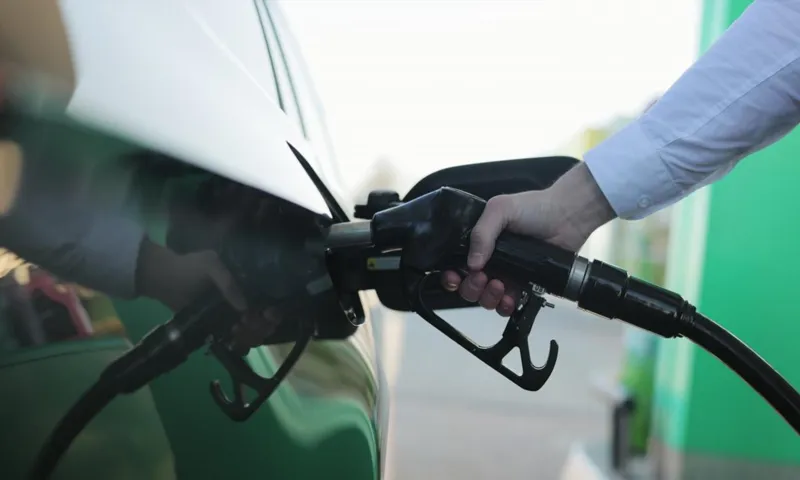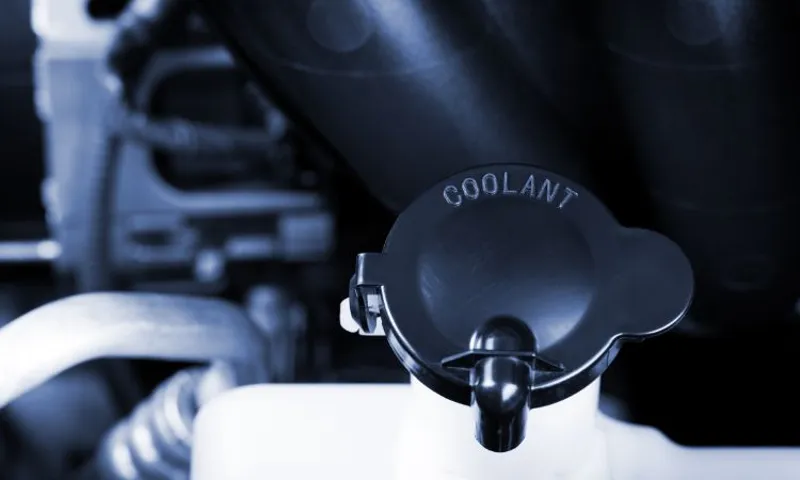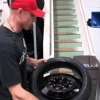Cars are complex machines with many different fluid systems that are vital for their proper functioning. One of these systems is the cooling system, which helps regulate the temperature of the engine and prevents it from overheating. Coolant, also known as antifreeze, plays a crucial role in this system by absorbing and dissipating heat.
But have you ever wondered how much coolant your car actually needs? In this blog post, we will explore the answer to the question, “How many gallons of coolant does a car take?” So buckle up and let’s dive into the world of car coolant!
Table of Contents
Understanding Coolant
One question that often arises when it comes to car maintenance is how many gallons of coolant does a car take? Well, as with many things in life, the answer is not quite so simple. The amount of coolant your car needs can vary depending on the size and type of your engine. Generally, most cars require around 1-2 gallons of coolant.
However, it’s always best to consult your car’s owner’s manual or check with a trusted mechanic to ensure you have the correct amount. Using the right amount of coolant is essential for maintaining proper engine temperature and preventing overheating. So next time you’re topping up your coolant, make sure you know exactly how much your car needs.
What is coolant?
“coolant” Coolant is a vital component for maintaining the optimal performance and longevity of your vehicle’s engine. But what exactly is coolant? Well, think of it as the engine’s best friend, helping to regulate the temperature and prevent it from overheating. It’s like a cool breeze on a hot summer day, keeping everything running smoothly under the hood.
Coolant is a mixture of water and additives, such as ethylene glycol or propylene glycol, that work together to lower the freezing point and raise the boiling point of the water. This is important because it allows the coolant to effectively cool and protect the engine in extreme temperatures. But why is it so important to have the right coolant for your vehicle? Well, just like how you wouldn’t want to drink a milkshake made of dish soap, your engine wouldn’t appreciate being filled with the wrong coolant.
Using the wrong type or mixture of coolant can lead to costly damage, such as corrosion, leaks, and even engine failure. So how do you know which coolant is right for your vehicle? Well, the manufacturer’s recommendations are a good place to start. They specify the type and mixture of coolant that is best suited for your engine.
It’s also important to regularly check your coolant levels and top them up if needed. Neglecting to do so can lead to overheating and potential engine damage. In conclusion, coolant is an essential fluid that helps regulate the temperature of your vehicle’s engine.
It’s important to use the right type and mixture of coolant as recommended by the manufacturer to ensure proper engine function and avoid costly damage. So next time you’re checking under the hood, don’t forget to give your engine’s best friend, the coolant, a little attention too.

Why is coolant important for a car?
coolant, car, importance Coolant is an essential component for cars as it helps to regulate and maintain the temperature of the engine. Just like how we need water to cool down our bodies when we’re hot, cars need coolant to cool down their engines. Think of coolant as the engine’s very own bodyguard, protecting it from overheating and potential damage.
Without coolant, the engine would quickly heat up, causing the metal components to expand and potentially seize up. This can lead to a breakdown and costly repairs. Coolant also helps prevent corrosion and rust buildup within the engine, which can further extend its lifespan.
So, the next time you see that little symbol on your car’s dashboard reminding you to check your coolant, remember that it’s not just a suggestion but a crucial part of keeping your car running smoothly.
Calculating the Gallons
Calculating the Gallons: It’s an essential question for every car owner: How many gallons of coolant does my car take? The answer depends on the size and type of your vehicle. A good rule of thumb is that most cars require about one gallon of coolant for every 20-25 quarts of cooling system capacity. So, if your car’s cooling system capacity is 10 quarts, you’ll need approximately half a gallon of coolant.
However, it’s always best to consult your car’s manual or speak with a professional mechanic to get the most accurate information for your specific make and model. Ensuring you have the correct amount of coolant is crucial for maintaining proper engine function and preventing overheating. So, don’t neglect your car’s coolant needs- keep it topped up and running smoothly!
Factors that affect coolant capacity
calculating coolant capacity, factors affecting coolant capacity, calculating gallons of coolant When it comes to coolant capacity, there are a few factors that come into play. One of the main factors to consider is the size of the system that the coolant will be used in. The larger the system, the more coolant it will require.
This makes sense, as a larger system will have more surface area and more components to cool. Another factor to consider is the type of coolant being used. Different types of coolants have different heat transfer properties, which can affect the capacity needed.
Additionally, the temperature at which the coolant needs to operate is also important. If the coolant needs to maintain a lower temperature, it will require a larger capacity. Finally, the efficiency of the cooling system itself can also impact the coolant capacity needed.
A more efficient system will require less coolant to maintain the desired temperature. By taking all of these factors into account, it becomes possible to calculate the gallons of coolant needed for a given cooling system.
Finding the coolant capacity for your car
calculating coolant capacity, gallons, coolant capacity
Recommended Coolant Amount
“how many gallons of coolant does a car take” When it comes to adding coolant to your car’s radiator, it’s essential to know the right amount to use. The specific amount of coolant required can vary depending on the size and type of your vehicle. Most cars typically require about 1 to 2 gallons of coolant, but larger vehicles like trucks or SUVs may need more.
To be certain, it’s always best to consult your vehicle’s owner’s manual or ask a professional. It’s important not to overfill or underfill the coolant, as both can lead to engine problems. Coolant is crucial for maintaining the proper temperature of your engine and preventing it from overheating.
So, the next time you’re adding coolant to your car, make sure to check the recommended amount and fill accordingly to keep your engine running smoothly.
How much coolant is typically needed for a car?
recommended coolant amount, car coolant levels, how much coolant does a car need, maintaining car coolant levels, proper car coolant levels When it comes to maintaining your car, one important aspect to consider is the coolant level. Coolant, also known as antifreeze, plays a crucial role in keeping your engine running smoothly and preventing it from overheating. But how much coolant does your car actually need? While the exact amount can vary depending on the make and model of your vehicle, as well as the size of the engine, a general rule of thumb is to have a 50/50 mixture of coolant and water.
This ratio ensures that your coolant provides both optimal cooling and protection against freezing in colder temperatures. To get the recommended coolant amount for your specific vehicle, it’s always best to consult your owner’s manual or ask a professional mechanic. They will be able to provide you with the exact specifications and guide you in maintaining the proper coolant levels for optimal engine performance.
Checking your car’s owner manual
recommended coolant amount
Conclusion
Well, my dear inquisitive minds, determining the amount of coolant a car requires is like embarking on a quest to find the elusive unicorn in a world of magical car engines. You see, just as unicorns come in all shapes, sizes, and colors, cars too vary in their coolant needs. Picture this: behind the hood of each car resides an intricate ecosystem, where engines breathe fire, pistons dance, and oil flows like a river of vitality.
Now, within this captivating world, each engine possesses its own peculiarities, little quirks that make it truly one-of-a-kind. These quirks, my friends, are the key to unlocking the mysterious coolant consumption code. Some engines, resembling noble steeds, require a mere gulp of coolant to satiate their thirst for freshness.
Let’s call them the minimalists, the modest ones who believe in conserving resources and aspire to be the Prius of coolant consumption. On the other end of the spectrum, we meet the engine behemoths, the thirsty giants that crave gallons of coolant like a fearsome dragon yearning for a cool breeze on a scorching summer day. These lavish engines demand the finest coolant, as if they were royalty sipping from a golden chalice.
Now, dear curious souls, you may be wondering, how can one possibly predict the coolant requirements of a particular car? Fear not, for the answer lies within the sacred pages of your vehicle’s manual. Yes, hidden within the depths of that manual lies the secret formula, a treasure map guiding you towards the perfect coolant quantity. But alas, fair warning must be given.
Even armed with this holy grail of information, circumstances may change. A change in outside temperature, an alteration in the engine’s disposition, or a mystical spell cast by a mischievous imp could all influence the amount of coolant required. So, my friends, the next time someone asks how many gallons of coolant a car takes, let us raise our voices in unison and say, “It depends, my dear friend, on the whims and fancies of the individual engine, on the dance it performs with its coolant, and the magic it weaves within its metallic heart.
” For in this world of automotive wonders, there are no definitive answers, only ever-evolving mysteries waiting to be unraveled. And my oh my, isn’t that enchanting?
FAQs
How much coolant does a car typically need?
The amount of coolant a car needs can vary depending on the size and type of vehicle. However, on average, most cars require around 1 to 1.5 gallons of coolant.
Is it necessary to use a specific type of coolant in a car?
Yes, it is important to use the correct type of coolant recommended by the car manufacturer. Different vehicles may require different coolant formulations to ensure proper performance and prevent damage to the engine.
Can I mix different brands of coolants in my car?
It is generally not recommended to mix different brands of coolants. Each brand may have its own unique formulation, and mixing them can result in chemical reactions that may reduce the effectiveness of the coolant or even cause damage to the cooling system.
How often should I check my car’s coolant level?
It is a good practice to check your car’s coolant level regularly, especially before long trips or during extreme weather conditions. Ideally, you should check it at least once a month.
What are the signs of low coolant level in a car?
Some signs of low coolant level in a car include a rising temperature gauge, overheating engine, coolant leaks, and a sweet smell coming from the engine compartment. If you notice any of these signs, it is important to top up the coolant level promptly.
Can I use water instead of coolant in my car?
While water can be used as a temporary substitute for coolant in emergency situations, it is not recommended for long-term use. Coolant contains additives that help prevent corrosion, lubricate components, and provide antifreeze protection, which water does not provide.
How often should I flush and replace the coolant in my car?
The recommended interval for coolant flush and replacement can vary between car manufacturers. It is generally recommended to flush and replace the coolant every 2-5 years or as specified in the vehicle’s owner’s manual.



